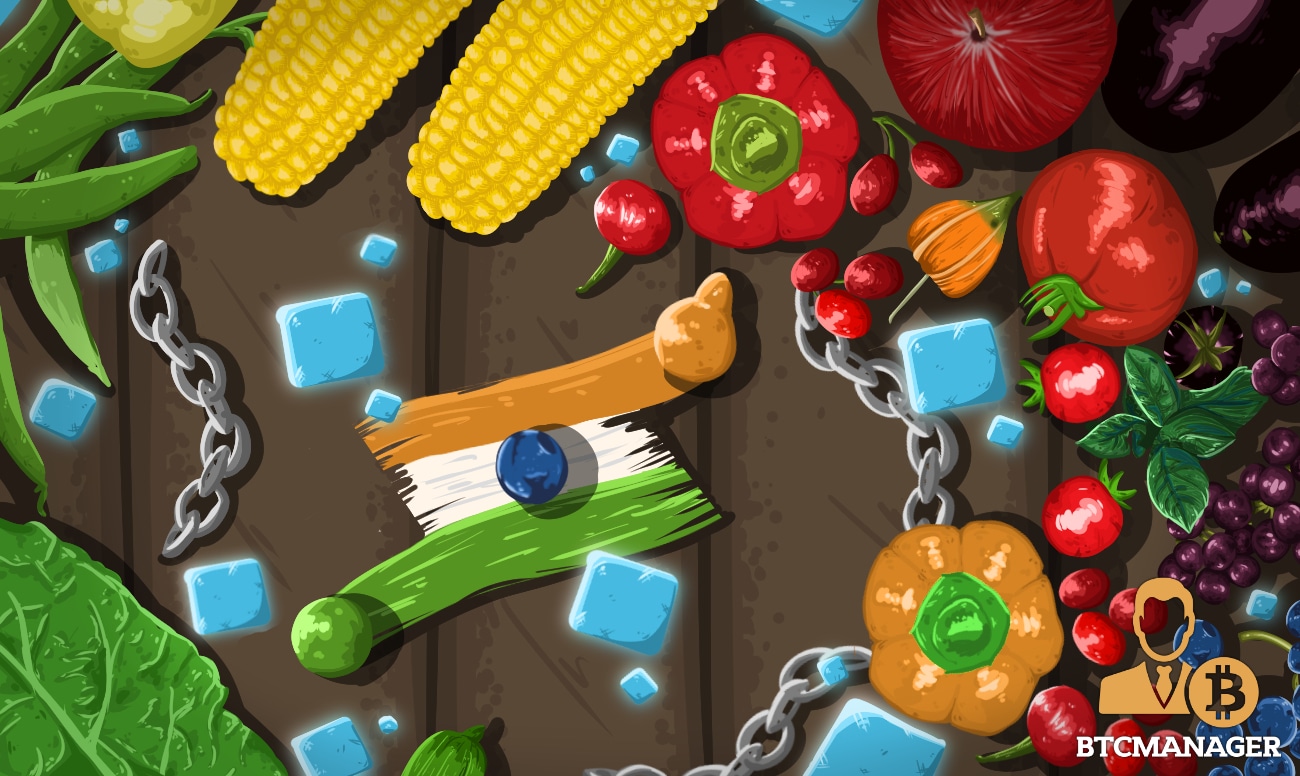India: Food Industry Seeks Blockchain-Based Supply Chain

An Indian consortium of food companies has entered into a partnership with tech giants to make the beverages and food supply-chain more transparent and safe. This according to a March 4, 2019, report by from the Financial Express.
The Opaque Supply Chain Sector of India
Blockchain technology continues to cover more ground under its reach, this time in the form of Indian food supply-chain space.
The problem of opaque supply-chains is a major one in India, where the majority of the population still prefers to buy everyday goods and products from brick and mortar stores. Take into consideration the outreach of supply chains to the remote rural parts of the country, and the problem becomes all the more menacing.
It’s not uncommon at all to find rip-offs of popular products in the rural parts of the country. However, with the help of blockchain technology, authorities are looking to mitigate such cases.
How Does Blockchain Help?
Before we discuss the way blockchain technology could help streamline the overly convoluted structure of supply chain channels in India, it’s important to assess whether customers and producers would be willing to bear the extra price in exchange for legitimate products.
One of the primary concerns stems from the fact that an increase in the price of products will disrupt the existing revenue-sharing infrastructure across various industries. Bearing in mind such far-reaching effects, it would be prudent to let the regulatory and policy authorities clear their stance towards blockchain.
Coming back to the topic of how blockchain could help the decades-old supply chain sector in India, one need not look any further than the problems visible on the surface. Scams, deeply veined corrupt practices, fraud, and inefficient paper-based transactions are just some of the problems plaguing the supply chain sector in India. However, this could change after the effective deployment of distributed ledger technology (DLT) in the sector.
According to 2018 policy paper by Food and Agriculture Organization of the United Nations, blockchain could dramatically transform the current sorry state of the food supply-chain in India. The paper reads in part:
“Blockchain technologies can enable an immutable contract between the various supply-chain actors and instill transparency. Further, the contract can reduce the density of supply chain network by removing the ‘not so complementing’ intermediaries. As a result, this can reduce transaction costs, improve margins, and induce efficiency and eventually deliver a larger share of the consumer’s spend to the farmer/producer.”
Per the report by Financial Express, a number of grape-exporting businesses from western India have already indicated interest in blockchain technology. They aim to improve quality checks of the physical crates of grapes and comply with the international hygiene standards to boost their exports.
2019: The Year for Blockchain Push at Enterprise Level for India
While blockchain technology has been embraced openly by India, 2019 could be the country’s watershed year to prove its commitments towards the adoption of the emerging tech.
BTCManager informed its audience on February 28, 2019, that as per the instructions by Telecom Regulatory Authority of India (TRAI), blockchain startup Tanla Solutions has launched a commercial communication solution aid users avoid fake and spam calls and messages.
Further, on January 24, 2019, reports emerged how the tech research arm of the Reserve Bank of India (RBI) unveiled a blueprint for the implementation of blockchain technology in the India banking sector.












